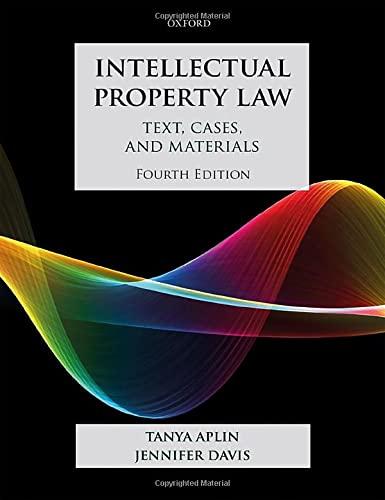Question
In explaining how a person can enter a social contract and be obliged to the laws of civil society, Locke invokes the notion of tacit
In explaining how a person can enter a social contract and be obliged to the laws of civil society, Locke invokes the notion of "tacit consent." Rawls, who is also a "social contract theorist," of sorts, argues that a social contract can arise only from "hypothetical consent." What is the difference between Locke's notion of tacit consent and Rawls's notion of hypothetical consent?
a) Tacit consent requires actually expressing one's consent to the terms of the contract, whereas hypothetical consent simply requires that a citizen would have given consent under certain ideal conditions.
b) One who gives tacit consent implies consent to the terms of the contract through her actions, whereas someone who gives hypothetical consent offers her explicit word on the basis of her particular desires.
c) One who gives tacit consent implicitly suggests, through her actions, that she accepts the terms of the contract, whereas to say that someone hypothetically consents means that she would have consented to the terms of the contract were she asked to do so under certain ideal conditions.
d) Tacit consent is consent given in the state of nature, whereas hypothetical consent occurs within an ideal society.
e) Tacit consent is consent given by any rational agent, irrespective of her particular desires or ends, whereas someone who gives hypothetical consent agrees to the terms of the contract based on some particular desire that she has.
Step by Step Solution
There are 3 Steps involved in it
Step: 1

Get Instant Access to Expert-Tailored Solutions
See step-by-step solutions with expert insights and AI powered tools for academic success
Step: 2

Step: 3

Ace Your Homework with AI
Get the answers you need in no time with our AI-driven, step-by-step assistance
Get Started


